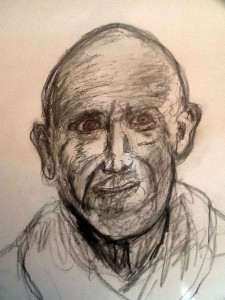Divorce is not what one normally thinks about as an event for which one should be grateful.. However, according to Brother David Steindl-Rast, OSB, grateful people are happy . And it is not the other way around— happy people do not cause their own gratitude. In his numerous writings and videos, this Benedictine monk, espouses a practice of gratefulness.
One of the aspects of my work as a divorce lawyer in Clearwater, Florida, is to appropriately interact with the stressed out personalities that the divorce process often evokes. Often times it is not just the clients who are experiencing this stress, and who act out in unhealthy ways. Lawyers, Accountants, Psychologists and Judges are not immune. Thus, all professionals and clients alike should consider this practice.
According to Brother David, one starts with the awareness that every moment is a gift. There is no assurance that you will receive another. He points out that some events such as war (and perhaps divorce) present a situation we cannot be grateful for. However, even in these situations, opportunity knocks. We can rise to difficult situations, and learn from them. We need to avail ourselves of this opportunity.
In order to live gratefully from moment to moment, we need to do what children are taught when they encounter an intersection: Stop. Look. Go. Think about it. How often do we stop? We tend to rush through life. We need to build stop signs in our lives.
This doesn’t sound very complicated. It’s not. However, as Brother Steindl-Rast conveys, this practice can change the world (which would include helping anyone who is going through a divorce). Here is a key point. If we are grateful, we are not fearful. Gratitude assists in engendering a deep trust in life.
A person encountering a life event such as a death or a divorce can lose this trust. Persons who have been, or perceive to have been, betrayed can have a difficult time with trust. However, in order to reach a level of functionality where problems can be solved, we must all connect and find this deep faith in life. Here is an important distinction: according to the author, Belief is not the same thing as Faith. And the opposite of Faith is not Unbelief, but Fear.
So much of the difficulty of dealing with the divorce process comes from the emotion of fear. Outcomes are never without risk. Important issues involving children and property are on the line. It affects everyone. The practice of gratefulness addresses this problem. When fear is a factor, recognition of it causes it to dissipate. Many if not most people do not realize how much the emotion of fear affects their behavior. Problems can be solved when there is a level of dignity and trust. There is no chance of dispassionate and professional approach to problem solving as long as emotions are in control. The practice of gratitude is an important tool in gaining an appropriate perspective to problem solving.



